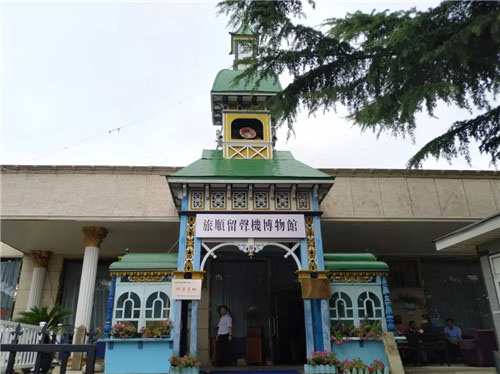The
Phonograph Museum
Lushunkou,
Dalian China

Memories
of the Phonograph
According to local media reports, the
Phonograph Museum at Taiyang Valley in Lushunkou, Dalian, northeastern
China's Liaoning province, has been renovated and reopened for
visitors on August 3, 2019.
The Phonograph Museum is the largest
old-fashioned gramophone museum in China. After upgrading and
renovation, its exhibition area has increased by nearly 700
square meters to over 1,600 square meters. The number of exhibits
on show in the museum has increased to over 1,000 and the number
of items in its collection has increased to more than 2,000.
The scale and quality of the museum's collection in the museum
are among the highest in China.

“Let’s give a cheer for these magical
sounds from 100 years ago!” cries Wang, encouraging his audience
of some 20 tourists, who’ve come from around the world to explore
his phonography museum, a damp storage building that Wang, a
retiree in his 60s, has converted into a unique private collection.
Dating from 1887 to 1979, over 25,000
records and antique phonographs offer a unique insight into
musical and military history.
Although Lüshun’s tragic history as a
locus of siege and slaughter is an inerasable scar on 20th-century
China, Wang’s museum manages to evoke what warmth and culture
existed during this turbulent period. For Wang, the records
are “loyal witnesses” to history, and can awaken powerful memories
for future generations to learn from.
Many, including the first generation
of wax and lakh (or gum) records made in China in the 1900s,
are highly valuable, and contain musical masterpieces from contemporaneous
artists such as Tan Xinpei, Mei Lanfang, Ma Lianliang, and Zhou
Xuan. Other collectors have frequently approached Wang, determined
to buy them at any price, but he says he has refused to sell.
However, as a private museum, Wang must
rely on the public to cover operational expenses, due to a lack
of government funding. Chinese regulations have encouraged the
establishment of private museums in recent years, but subsidies
vary by region, and Lüshun is not prosperous. Instead, local
officials offered Wang the building at a discount, and ticket
sales cover most of the rest. Phonographs degrade every time
when they are played, but Wang does the maintenance himself—and
is even training an apprentice.
“Collecting and preserving phonographs
and records has been my lifelong hobby,” Wang tells TWOC. “Unlike
most residents at my age, I’m not interested in mahjong, poker,
or chess. Even in my youth, I didn’t go to ballrooms or karaoke.”
“Am I strange? Maybe,” he muses. “I’ve
always hoped to establish a museum for my beloved items—and
now I’ve achieved it.”